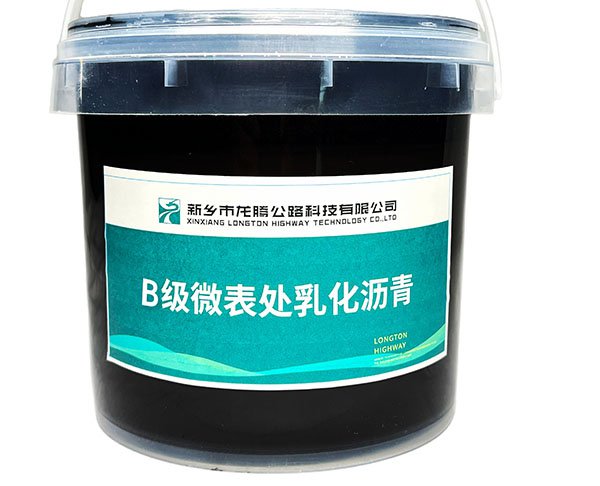1. Introduction to B-grade micro surface emulsified asphalt products
B-grade micro surfacing emulsified asphalt is a type of emulsified asphalt used for micro surfacing construction, with the main model being BCR. BCR emulsified asphalt is suitable for modified slurry sealing and micro surface construction, and has the characteristics of uniform mixing and good adhesion.
2. Basic concepts and properties of emulsified asphalt
Emulsified asphalt is a relatively stable liquid asphalt composed of water in oil or oil in water, formed by heating and melting asphalt and mechanically dispersing it in a small particle state in an aqueous solution containing emulsifiers. The main components of emulsified asphalt include matrix asphalt, emulsifiers, and additives, and its properties include easy flow at room temperature, black or brownish black color, etc.
3. Classification and application scope of emulsified asphalt
Emulsified asphalt can be classified into different types based on its properties and application scenarios, with the common ones being the B series and P series. The B series is mainly used for mixing, such as BC-1 emulsified asphalt, which is suitable for modified slurry sealing and micro surface construction; The P series is mainly used for spraying, such as PC-1/PC-2/PC-3 emulsified asphalt, suitable for bonding layers, sealing layers, and bridge deck waterproof bonding layers.
4. Basic concepts and process flow of micro surface construction
Micro surfacing construction is a flow type mixture made by mixing stone chips or sand with a certain grading, filler and polymer modified emulsified asphalt, admixture and water in a certain proportion, and evenly spraying it on the road surface as a sealing layer. This construction method can improve the durability and skid resistance of the road surface, and is suitable for highways, urban roads, etc.


